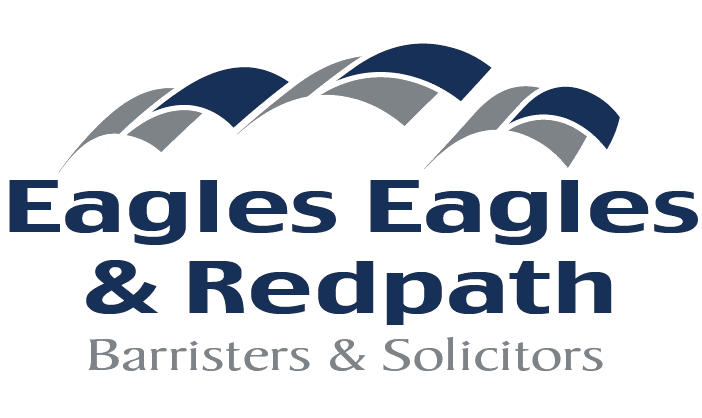What's News
What’s News in New Zealand Law
At Eagles Eagles & Redpath, we believe that every member of our community has the right to understand their legal rights and have access to legal counsel. To help you keep up to date, we will be updating this page with news and helpful links for you to explore. For more assistance, please don’t hesitate to contact
our legal team in Invercargill.

Residential Tenancies With a raft of new measures coming into place for both Landlords and Tenants along with the overall uncertainty of how this situation will develop, it is more important now than ever to ensure you have up-to-date legal advice. We can provide that piece of mind and comfort in knowing that any actions or decisions you make are the correct ones and are based on a sound legal footing. There are three key areas which you should be aware of being the healthy homes standards, the Residential Tenancies Act changes involving the powers of landlords and tenants and the updated taxation issues. Healthy Homes standards In respect of the healthy homes standards there is a checklist available which you can print and run through. If you have any issues with it you may wish to consider updating. Importantly if you are looking to purchase a new property and several of these issues are not checked off, you may wish to consider whether that investment is appropriate for you. https://www.raisethestandard.nz/assets/Raise-the-Standard/hhs-landlord-checklist.pdf?utm_source=Newsletter&utm_medium=email&utm_campaign=BG_May_2021&utm_content=https%3A%2F%2Fwww.raisethestandard.nz%2Fassets%2FRaise-the-Standard%2Fhhs-landlord-checklist.pdf Powers & Rights of Landlords and Tenants There have been recent changes surrounding tenancies including what is required for the tenancy and what powers and obligations landlords and tenants have. If you are uncertain about what you can or cannot do as a landlord or a tenant, please get in contact with the team. Some points that you may be aware of include the following: 1. A tenancy agreement must be in writing and provided to the tenant prior to the tenancy beginning. If it is not, the landlord may be liable for a fine. 2. Landlords cannot unreasonably refuse an assignment of the tenancy or for the tenant to make minor changes to the premises. This means that if a tenant is able to locate an appropriate replacement tenant, the landlord may be in a position where they cannot refuse the new tenant taking on the tenancy. 3. Rent increases are limited to being once every 12 months. 4. Tenancies can be terminated by providing a 63 day notice if a) The landlord requires it for the family within a 90 day period and for a period of at least 90 days or b) It is needed for employees or c) Other very limited circumstances. Otherwise the notice needs to be for 90 days and this can only be if the landlord is selling, developing, attending to significant refurbishment or alterations or demolition amongst other more limited circumstances. The major change in this area is that there does now need to be a reason to terminate the tenancy. Termination can also be applied for through the Tenancies Tribunal if the tenant is late in their rent however there are specific circumstances surrounding this where the tenant needs to be 5 working days late on 3 separate occasions within a 90 day period. Those 5 working days however do not necessarily need to be sequential and can be taken from sequential weeks. Tax Changes There have been changes to the tax laws in regards to investment properties and importantly the bright line test which has now been extended to 10 years for any investment property. If you require further information about that, please contact the team. In addition however, the government has also confirmed that there are complications for the ability of Landlords to deduct mortgage repayments from their income tax liability. We recommend that you seek formal accountancy advice surrounding this issue but a summary is set out at the attached link for your consideration. https://www.business.govt.nz/news/investment-property-law-changes-and-tips-for-maximising-returns/?utm_source=Newsletter&utm_medium=email&utm_campaign=BG_May_2021&utm_content=https%3A%2F%2Fwww.business.govt.nz%2Fnews%2Finvestment-property-law-changes-and-tips-for-maximising-returns%2F If you have any questions or issues, please get in touch with our property specialists Richard Little 027 503 7840 , Virginia Wilson 027 201 9982 or Michelle Hoten 03 218 2182 and we can discuss whether there is something we can do for you to ensure that, whether you’re Landlord or Tenant, you’re making the right decisions. Please note that the above information does not provide a legal opinion but is general commentary only. For a specialised opinion as to your particular circumstances please contact Eagles Eagles & Redpath on 03 218 2182 The Team at Eagles, Eagles & Redpath

The Government announced changes to its housing policies on 23 March 2021 which intend to cool the property market to make it fairer for first-home buyers to get onto the “property ladder” and gain more accessibility to the First Home Grant and First Home Loan. A couple of important points to note are: First Home Grant First home buyers can currently apply for a First Home Grant of $5,000 per buyer for an existing older property and $10,000 for new builds, as long as they have been contributing to their Kiwisaver Scheme for more than 3 years. The Government announced changes to the eligibility criteria - to qualify, a single person’s income cap has been increased from $85,000 to $95,000 and a couple from $120,000.00 to $150,000 per annum. However to receive a grant, the purchase price of the house or new build is capped, i.e. has to come under a certain dollar value. The Government announced today increases to the price caps in certain regions (see Kainga Ora website for a full schedule). Unfortunately the Southland region hasn’t received any increase. However, for example, the cap for an existing older home in Dunedin has increased from $400,000 to $425,000 and for a new build from $500,000 to $550,000. Extension to Bright-line test Property investors have been targeted by the bright-line test being extended from 5 years to 10 years, although new builds will be exempt. At present any property other than an owner-occupied home that was bought between 1 October 2015 and 28 March 2018 and sold within 2 years, or bought after 29 March 2018 and sold within 5 years, is subject to tax on its capital gains. Now any property purchased from 27 March 2021 will have to be held for 10 years to escape the tax. For many investors, the tax rate could be between 33% or 39% of the sale, depending on their income and how much the house is sold for. Any investment property with a settlement date after 27 March 2021 will be hit by the new rules. It is important to note that you can only use the “main home” exclusion twice in any two-year period to avoid the bright-line test. The bright-line test won’t apply if you have used a property as your main home for more than 50 percent of the time you own it, or you use more than 50 percent of the property’s area. Michelle Hoten

Land Information New Zealand is making it easier and cheaper for New Zealanders to access record of title information relating to land ownership. From February members of the public will be able to search and order titles from Land Information New Zealand directly without needing to include a Solicitor. There are some restrictions including searching by owners name however other searches can still be made widely. If you have concerns about your safety and would like to withhold personal details involving your property then you can apply for the Registrar-General of Land to withhold your information. There are forms available on their website however if you’d like assistance with this, please feel free to be in touch with Richard or Virginia here at Eagles Eagles & Redpath . Having significant experience in this area, we can make these applications easy.

It is commented on more and more in legal circles the rapidness with which Kiwisaver accounts are growing. This, on all accounts, seems to be very beneficial not only for first home buyers but also for those retiring. One concern that does appear to be regularly overlooked however is what happens in the event of a premature death. Here at Eagles, Eagles & Redpath, we believe in soundly planning for your future and addressing any potential issues that could arise as early as possible. If someone has over $15,000.00 in their Kiwisaver, they will need either Probate or Letters of Administration from the High Court of New Zealand before those funds can be distributed. As Kiwisaver accounts are regularly exceeding $15,000.00, we are strongly advising our clients to ensure their wills are accurate and up to date. The main difference between applying for Probate with a will and applying for Letters of Administration are that a will allows the deceased to direct where their money goes while otherwise it can be dictated according to the Administration Act. Wills also generally allow a reduced time frame and reduced cost in applying to the High Court. Most wills are relatively straightforward and we can provide you with an estimate for drafting and correctly executing an accurate and clear will by simply contacting our office on (03) 218-2182. Richard and Virginia specialise in estate planning and are ready to assist to ensure that your future is protected.

Our Chief Justice has issued a directive surrounding Court and litigation matters. You can find up-to-date information here - https://www.courtsofnz.govt.nz/publications/announcements/covid-19-coronavirus/. So whether your matter involves family, criminal or civil litigation, we urge you to keep in touch with us ( 03 218 2182 ) so that we can continue to assist you through these trying times. As this situation progresses, we have had direct regular updates from our Courts. If you have any court appearances set for the next month, please check our website or contact our team to discuss. Roger Eagles – 027 404 444 – Criminal, Civil and Tenancy Peter Redpath – 027 431 3940 – Criminal, Family, Mental Health and Employment Richard Little – 027 503 7840 – Criminal, Civil, Mental Health and Tenancy Angela Mackenzie – 027 298 1553 – Family and Employment Katarina Coote – 027 378 6617 - Criminal The majority of matters are being adjourned. We have received advice that most High Court civil matters set down for hearing (including judicial settlement conferences, telephone conferences) in the South Island have been nominally adjourned to Friday 15 May 2020. Please note however that there are certain areas where matters will proceed, for example matters of an urgent nature involving risk to persons, and if you are unsure, please get in touch. Take care out there, The Team at Eagles, Eagles & Redpath

23/10/2019 We are starting to see a regular number of clients with alcohol interlock licences who have for various reasons been unable to actually have the devices installed. Despite the passage of two or three years, they remain disqualified from driving which appears to be in excess of any finite term that would normally be imposed by the Court. We consider there are good reasons for why alcohol interlock devices are installed in terms of behavioural change however when contrasted with a lengthy period of practical disqualification, we consider that often the disqualification may have served its purpose. As a result we are assisting clients with applying to the Court for the removal of their alcohol interlock licence and replacement of that licence with a zero alcohol licence. In certain circumstances a further finite period of disqualification can be imposed by the Court however if you are in that situation and would like to apply for the removal of your alcohol interlock licence requirements, please get in touch with the friendly team here at Eagles Eagles & Redpath to get that process in motion. Phone: 0800 033 418

There have been changes made to eligibility for Housing New Zealand grants including what were the ‘Welcome Home Loan’ and the ‘HomeStart’ grants which are taking effect from 1 October 2019. You can read about these changes here What this will mean for you is that if you are intending to purchase this year and are wanting to investigate obtaining this loan or grant, there may be some delays in cross-over. Please get in touch with the conveyancing team here at Eagles, Eagles & Redpath to discuss what steps you need to be taking. Our lawyers are always ready to assist with any legal issues you have.

New Zealand has passed a law called the Anti-Money Laundering and Countering Financing of Terrorism Act 2009 ("the AML/CFT law" for short). The purpose of the law reflects New Zealand's commitment to the international initiative to counter the impact that criminal activity has on people and economies within the global community. Recent changes to the AML/CFT Act mean that from 1 July 2018 lawyers must comply with its requirements. Lawyers must do a number of things to help combat money laundering and terrorist financing, and to help Police bring the criminals who do it to justice. The AML/CFT law does this because the services law firms and other professionals offer may be attractive to those involved in criminal activity. The law says that law firms and other professionals must assess the risk they may face from the actions of money launderers and people who finance terrorism and must identify potentially suspicious activity. To make that assessment, lawyers must obtain and verify information from prospective and existing clients about a range of things. This is part of what the AML/CFT law calls "customer due diligence". CUSTOMER DUE DILIGENCE REQUIREMENTS Customer due diligence requires a law firm to undertake certain background checks before providing services to clients or customers. Lawyers must take reasonable steps to make sure the information they receive from clients is correct, and so they need to ask for documents that show this. We will need to obtain and verify certain information from you to meet these legal requirements. This information includes: • your full name; and • your date of birth; and • your address. To confirm these details, documents such as your driver's licence or your birth certificate, and documents that show your address - such as a current bank statement - will be required. If you are seeing us about company or trust business, we will need information about the company or trust including the people associated with it (such as directors and shareholders, trustees and beneficiaries). We may also need to ask you for further information. We will need to ask you about the nature and purpose of the proposed work you are asking us to do for you. Information confirming the source of funds for a transaction may also be necessary to meet the legal requirements. IF YOU CANNOT PROVIDE THE REQUIRED INFORMATION If we are not able to obtain the required information from you, it is likely we will not be able to act for you. Because the law applies to everyone, we need to ask for the information even if you have been a client of ours for a long time. Before we start working for you, we will let you know what information we need, and what documents you need to show us and let us photocopy. Please contact the lawyer who will be undertaking your work, if you have any queries or concerns.

New Overseas Rules As of 22 October 2018 there are new rules that property purchasers need to be aware of under the Overseas Investment Act. New criteria means that overseas parties may not be able to automatically purchase residential properties in New Zealand. We strongly advise that any potential purchasers contact us before signing any Agreement for Sale and Purchase. A helpful online tool has been prepared on the New Zealand government website here which will hopefully assist you however for a detailed assessment, please contact the team at Eagles, Eagles and Redpath Buying or Selling a home? The Real Estate Authority has set up a website with the basic information you will need when buying or selling a house. It is a great place to start to ensure you are taking into account the right things when you are going through this process as there can be a lot to take in. Once you’ve gone through the initial stages, we agree with their recommendation that legal advice is obtained to ensure there are no particular issues which should be addressed. Here at Eagles Eagles & Redpath, we are committed to ensuring you are fully aware of what you need to do to be legal. We take time to stress the important things and make things as easy and straightforward for you as possible. If you’re thinking about buying or selling, make sure you give us a call for a chat about what else you need to think about. Moving Soon? See our handy tips below! Also some resources from Settled here

